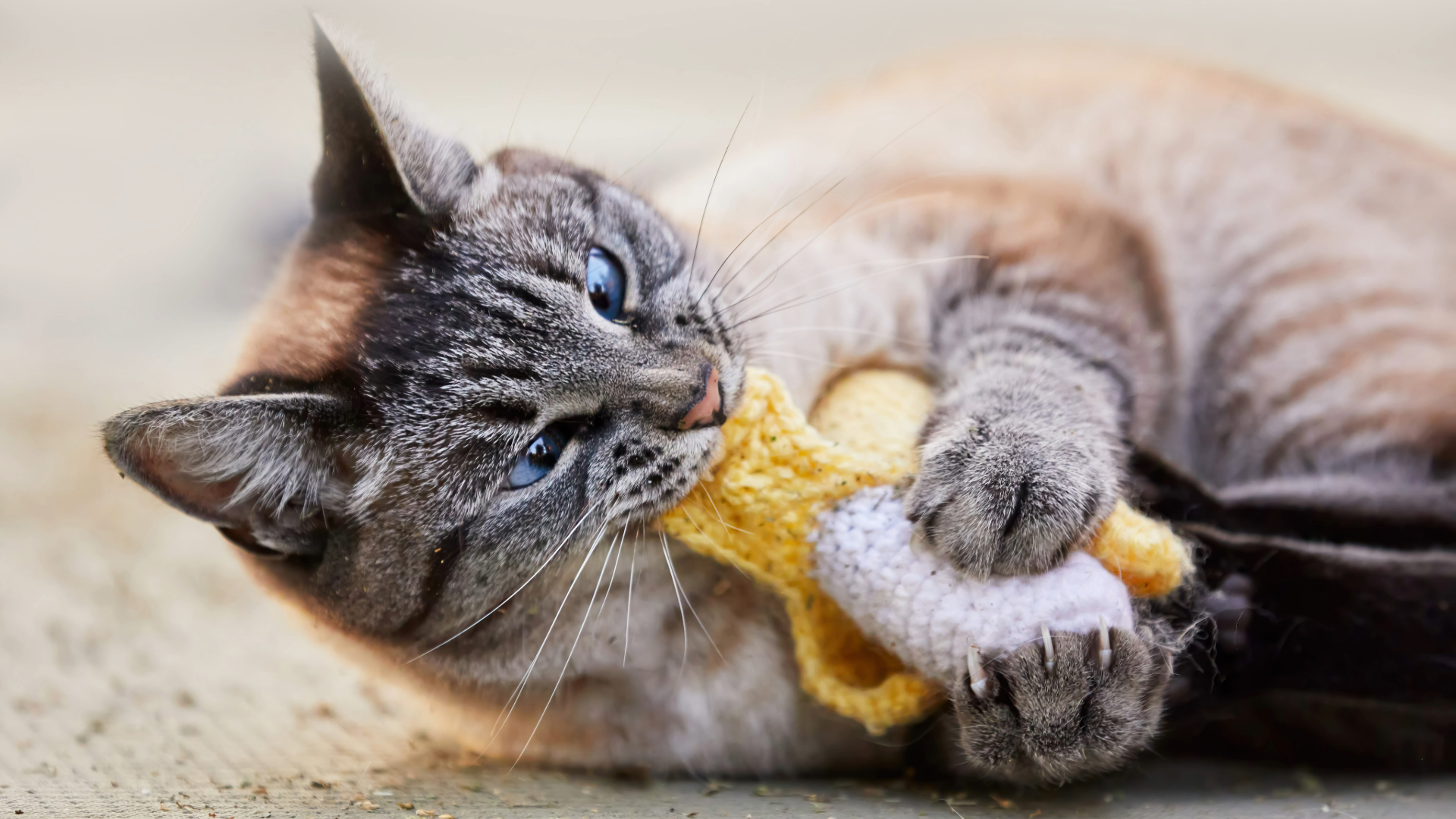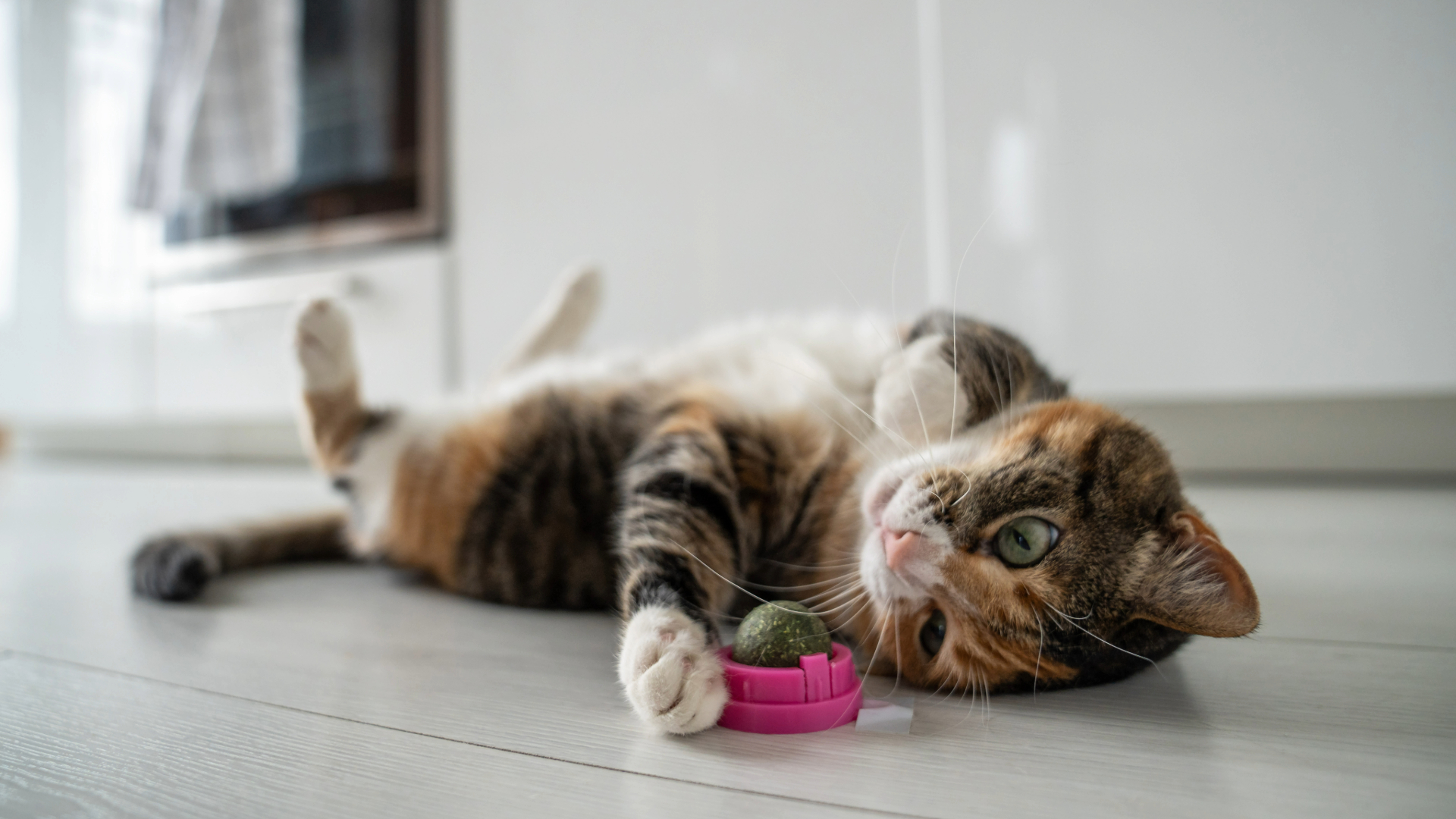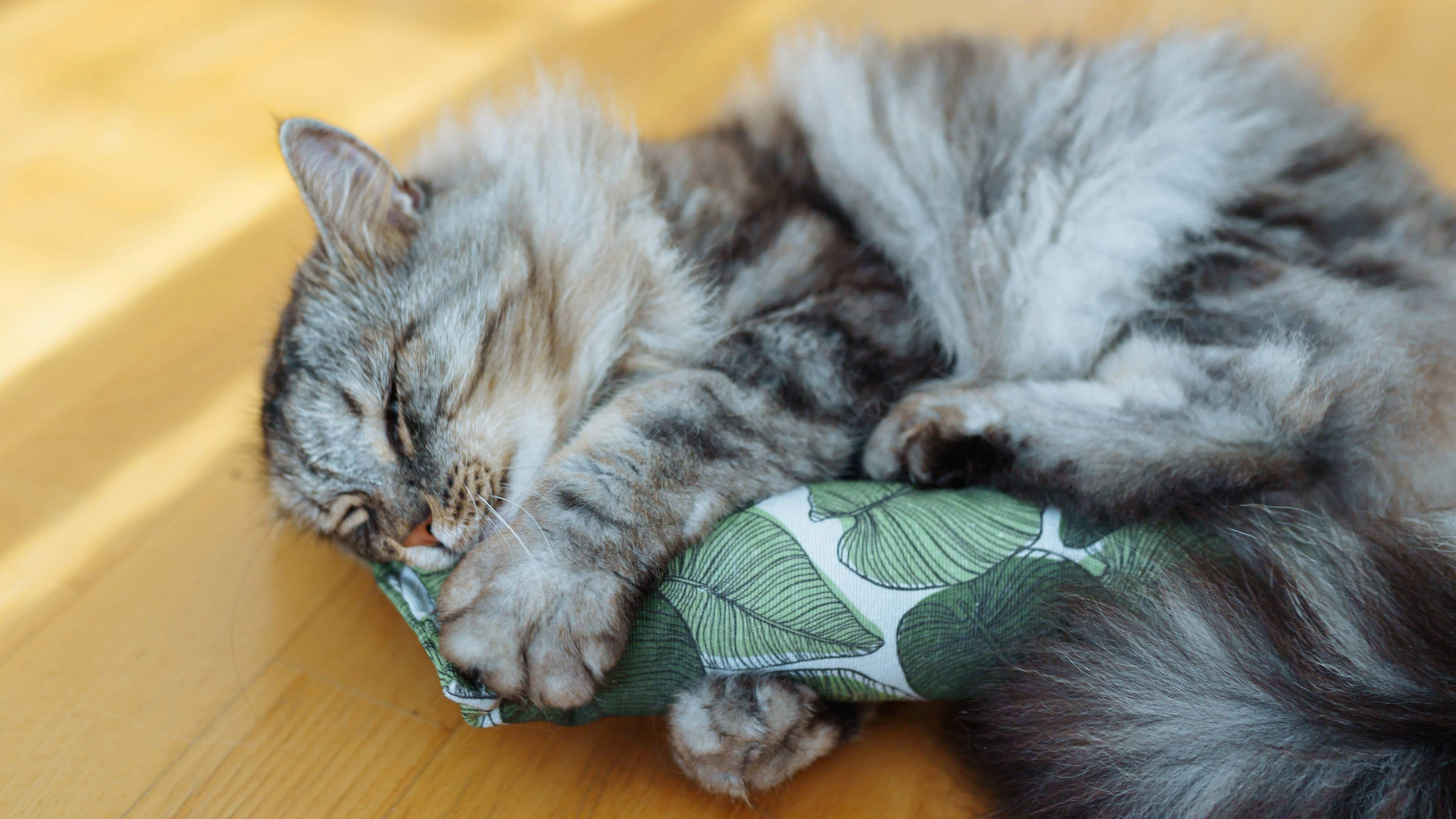
If you've ever questioned, “What is silver vine?”, then you're not alone. Although most people have heard of catnip, it actually only affects two in three cats. This means some kitties don’t seem to get the same reaction from smelling catnip or playing with the best catnip toys. So, could silver vine be a good alternative?
I’ve been a vet for eight years, and I’ve fostered many cats in my time. Most of them responded to catnip, but it’s always a bit disappointing when they don’t.
Although silvervine has been used in cats for decades, it has only recently become more widespread – probably thanks to the internet! In fact, it’s so popular now that there are even studies investigating its use.
Below, I've explained what silvervine is, how it’s used, and whether it’s safe for cats to use.
What is silver vine?
Silver vine (Actinidia polygama) is a fast-growing climbing plant that’s related to kiwi fruit. It grows in mountainous areas of Asia, particularly Korea, Japan, and China.
In traditional Chinese medicine, silver vine has many uses and is also called matatabi, but it’s also known as cat powder because of its effect on cats. This was first documented in 1906, when the silver vine plant was imported to Harvard Arboretum and the observed effect on local cats was published in the journal Science.
Silver vine is more popular than catnip in Japan, where cat owners have probably been using it for its euphoric effect for centuries! Don’t be surprised if you haven’t heard of it before though – most Australian and US vets haven’t either! In fact, it’s only because I spend so much of my time writing and researching that I’ve come across it – it’s very new to the Western world!

What does silver vine do to cats?
Like catnip, the smell of silver vine can make cats react strangely, causing them to roll and rub their cheeks and faces. While we don’t know exactly why, it’s thought that natural plant chemicals related to nepetalactone (the compound in catnip) are the cause.
Since these chemicals are natural insect repellents, cats may have evolved to behave like this around silver vine because the behavior spreads the chemicals on their fur, helping them prevent mosquito bites. Another possibility is that these chemicals mimic scents used by cats to communicate.
Silver vine and catnip are good enrichment for cats – they improve a cat’s welfare by providing them with a different scent that they seem to enjoy. When cats respond to these smells, they can cause an increase in positive behaviors like cat play.
Which cats is silvervine good for?
There’s no information about which cats are more likely to react to silvervine – they seem to react equally whether they’re male or female, young or old.
Most cats do respond to it, especially if they don’t respond to catnip, so why not give it a go? If your cat doesn’t respond to silver vine or catnip, you might want to give up. While there’s a small chance they’ll respond to Tatarian honeysuckle or valerian root, only 3% of cats that didn’t respond to catnip or silvervine did respond to one of these two (according to this study).

Is silver vine stronger than catnip?
While catnip only produces one iridoid compound at a high level, silver vine produces several related compounds, especially when the leaves are damaged. This combined smell seems to be more exciting to cats, and cats respond more strongly to silver vine than catnip in this study.
Another study also found that cats responded more intensely to silver vine. In this study, they tested 100 cats to see which of four plants they responded to best. They found that eight in 10 cats responded to silver vine, while only seven out of 10 responded to catnip.
The study also found that the response to silver vine was more intense. In addition, of the three in 10 cats that didn’t respond to catnip, 70% responded to silver vine, meaning silver vine is a good option for cats that don’t respond to catnip.
What about types of silver vine?
The type of silvervine used seems to make a difference. One very small study suggests cats do respond to dried fruits, but only if the fruit was infected with a parasitic insect causing a ‘gall’.
These silver vine fruit galls can make good natural cat toys when dried. Silver vine sticks are less likely to cause the ‘catnip effect’, causing only one in five to respond in the study, likely because they have lower amounts of the necessary chemicals.
The leaves seem to work well, regardless of whether the plant had been grown in Asia (and therefore likely attacked by the parasitic midge) or in the USA.

Is silver vine safe for cats?
Like catnip, silver vine appears to be safe for cats. They don’t get addicted, and continuous use didn’t cause stress changes in the blood, or kidney or liver injury in this study.
While the study population was small, they checked cats over a three-year period and didn’t identify any causes for concern. We also know that silver vine has been used in Japan for a long time and if its use caused problems, we would expect to see higher rates of diseases there.
You might also want to learn how to play with a cat and can cats play fetch?







